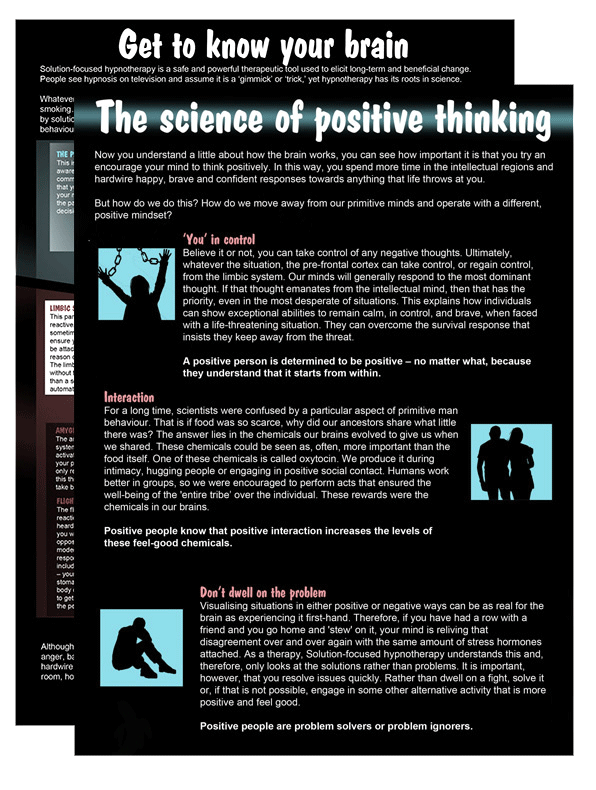Most of us have experienced stress at some point in our lives. Stress can be uncomfortable but is a very normal reaction to life’s demands. Stress is a powerful way of mobilising ourselves to work quickly and effectively in time of challenge, giving us energy and drive to act. That feeling of being overwhelmed, irritable or worried is the brain’s way of communicating to us that ‘something is not right and needs to be put right quickly’. But chronic stress, stress which is prolonged and severe, can be very harmful both physically and psychologically. Here are just 10 examples of how it affects the body:
1. Can speed up the development of cancer
2. Increases our vulnerability to infection
3. Exacerbates plaque formation in the arteries increasing the risk of blood clots and heart attacks
4. Can accelerate the onset of diabetes
5. Can lead to ulceration of the gastrointestinal tract
6. Can damage the Hippocampus in the brain and impair memory
7. Wounds take longer to heal as does recovering from illness and diseases
8. Raises blood cholesterol
9. Leads to weight gain around the stomach
10. Reduces responsiveness to vaccines

The good news is that stress is a state of mind. States of mind can, with the right approach, be altered. Here are my top tips for combatting chronic stress:
• Identify each stressor in your life in a list. For each stressor identify an immediate, medium and longer-term action for dealing with that stressor. Review and adhere to your actions as often as you can.
• Reflect on what has helped you deal with stress in the past. If you have no previous experience on which to base this, identify your preferred methods for relaxing and enjoyment down. These can be as simple as reading a book or indulging a hobby or interest. Once identified, schedule in at least one of these activities daily.
• Communicate your feelings of stress with at least one significant other. Identify how that person might be able to help relieve some of your stress in the short and longer term and don’t be afraid to ask for help.
• Eat well. When stressed, our desires for certain types of food (fatty and high sugar) is increased as our body operates in Fight-Flight mode which requires a lot of energy reserves. Be aware of the body’s natural tendency to want to stock up on unhealthy foods and create a realistic plan for healthy eating. Treats are fine in moderation but can lead to weight gain and health problems if defaulted to long term.
• Exercise. By exercising you will release Serotonin, Dopamine and Endorphins which will naturally lift mood and help you feel like you can ‘cope’. Simply taking a ‘walking lunch break’, a high impact 5 minute skip in the garden or ditching the car in favour of a brisk stroll can have a positive impact on stress levels.
• Sleep is the brain’s way of both decluttering, problem solving and emptying our metaphorical ‘stress buckets’ (See my previous blog https://freshleafhypnotherapy.co.uk/5-great-pre-sleep-tips-for-a-super-human-tomorrow/ ) We require a certain amount of sleep every day in order to do so. As tempting as it is to ‘burn the midnight oil’ regularly. You will be more productive and less stressed the next day if you prioritise sleep during periods of stress.
• Time travel. Imagine that you are fast-forwarding yourself 10 years into your future in a hot air balloon and looking down at your current situation. How will you be feeling about this current time of stress? This technique can be helpful in reminding ourselves that phases or life are both temporary and not as significant as we can feel they are in that moment.
• Relax deeply using meditation or Hypnotherapy

 1) Getting to know your brain
1) Getting to know your brain